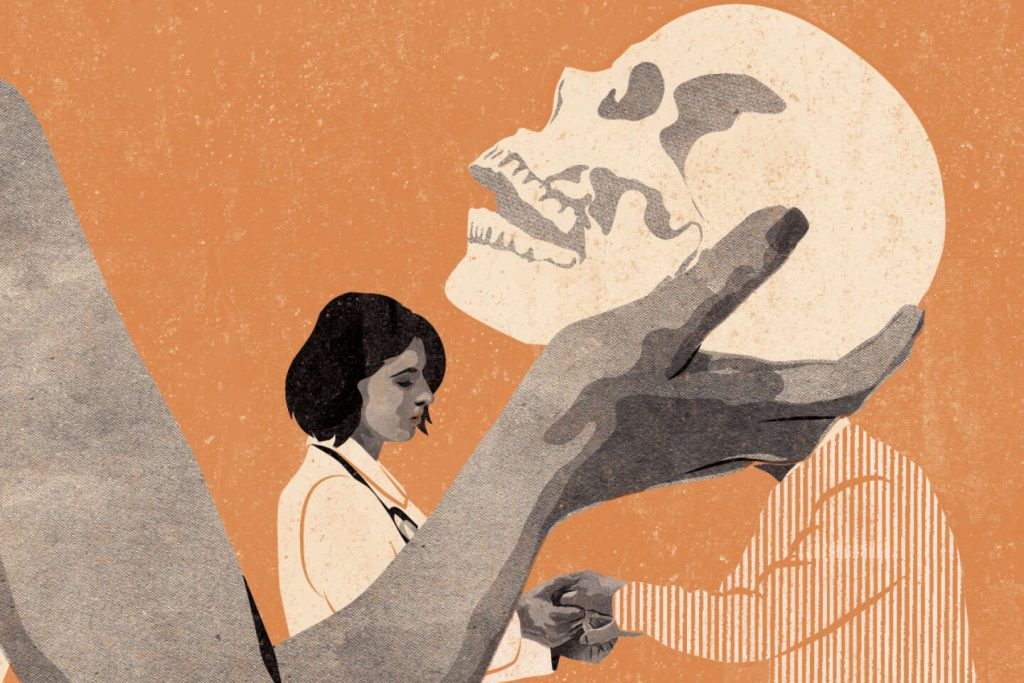Nina C., a sixth-year medical student, participated in a theater workshop that aimed at training future healthcare providers in delivering cancer diagnoses. In the workshop, Nina had to inform a patient, who was actually an actress, that she had pancreatic cancer which had metastasized to her liver. The workshop was designed to teach students how to deliver difficult news in a sensitive and empathetic manner. The importance of language choice and non-verbal communication during such announcements was emphasized by the professor leading the workshop.
The workshop was part of an initiative at the Faculty of Medicine in Montpellier-Nîmes, led by Marc Ychou, a professor of digestive oncology with a passion for theater. Ychou highlighted the importance of using appropriate language when discussing cancer diagnoses with patients. Rather than using words like “grave” or “méchant,” he suggested saying that the situation is “sérieux.” Additionally, he cautioned against giving too much information during the first meeting with a patient, as it can be overwhelming for them. Ychou emphasized the impact of a healthcare professional’s attitude during an announcement on the patient’s emotional state.
According to a survey conducted by the French cancer charity, La Ligue contre le cancer, in 2018, the moment of receiving a cancer diagnosis is considered the most challenging part of the treatment journey by one-third of respondents. The survey highlighted the lack of listening and emotional support provided by healthcare providers during these difficult conversations. Many patients feel overwhelmed and in a state of shock during the announcement of their diagnosis, making it crucial for healthcare professionals to be empathetic and supportive during this time.
In addition to language choice, the workshop also focused on the importance of non-verbal communication when delivering difficult news. Alongside Professor Ychou was 80-year-old theater director Serge Ouaknine, who has a background in theater and whose family has been affected by cancer. Ouaknine emphasized the role of non-verbal cues in building relationships with patients and their families. By incorporating theater techniques into medical training, healthcare providers can learn how to effectively convey empathy and maintain a professional distance during emotional conversations.
The collaboration between the medical and theater worlds is aimed at improving the way healthcare providers communicate difficult news to patients with compassion and sensitivity. The training provided through workshops like the one at the Faculty of Medicine in Montpellier-Nîmes helps students develop the necessary skills to deliver cancer diagnoses in a supportive and understanding manner. By focusing on both verbal and non-verbal communication, healthcare providers can enhance the patient experience during difficult moments in their cancer journey.
Overall, the integration of theater techniques into medical training is a valuable tool in preparing future healthcare providers to effectively communicate with patients during challenging moments such as cancer diagnoses. By emphasizing the importance of language choice, non-verbal cues, and empathy, workshops like the one at the Faculty of Medicine in Montpellier-Nîmes are helping to improve the overall patient experience and ensure that healthcare providers are equipped to support patients through difficult times in their treatment journey.


